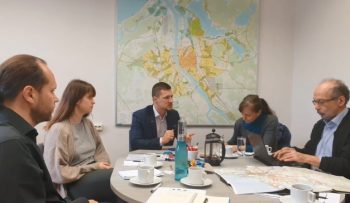URBACT Action Planning Networks RiConnect, Space4People and Thriving Streets are launching a city policy learning platform on the topics of mobility and public space. A first webinar bringing together all city partners and a wider group of interested stakeholders will be organised on Monday 29 November, 10.00 – 14.00 CET. It will showcase examples of innovative mobility and public space practices and allow time for discussions and networking. Moderator: Iván Tosics URBACT Thematic Programme Expert
To register, please click here: link
For more regular updates and exchanges with the networks, join the (link is external)Walk’n’Roll Cities LinkedIn group.
